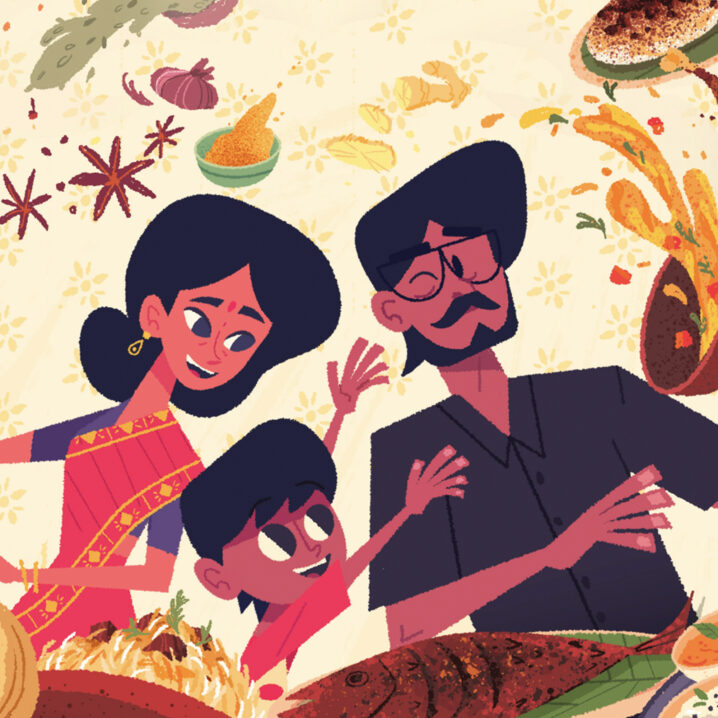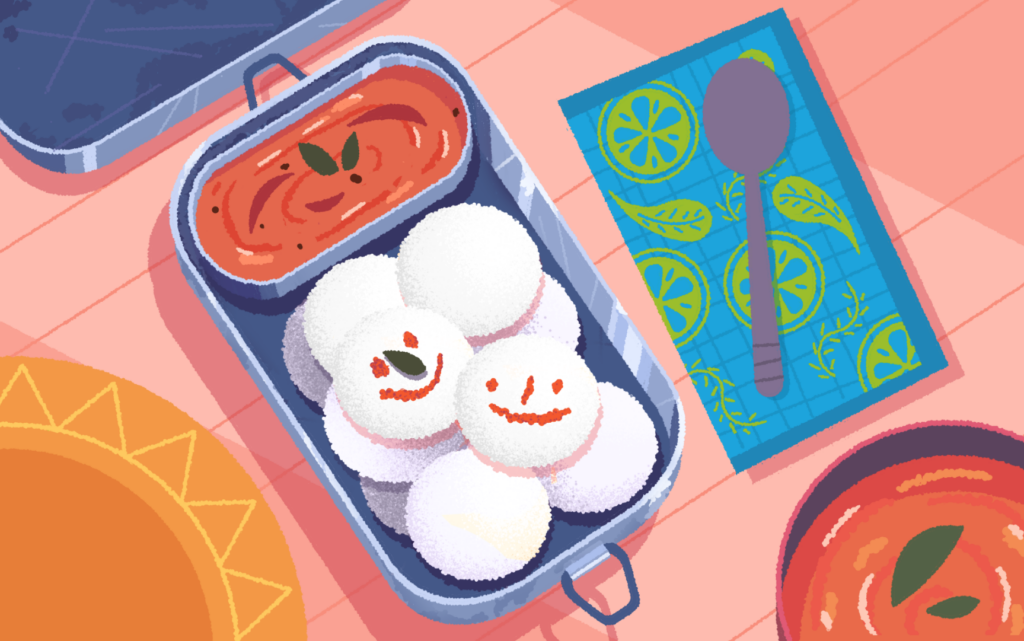
- POPSUGAR Australia
- Gaming
- How “Venba”, An Indian Cooking Video Game, Reminded Me To Love Myself And My Cultural Identity
How “Venba”, An Indian Cooking Video Game, Reminded Me To Love Myself And My Cultural Identity


POPSUGAR has partnered with Xbox to break down stereotypes and barriers in the gaming industry, giving women a space to explore, be inspired and a platform to feel empowered.
“I don’t want to smell like ‘Little India’ anymore. I just… Want to be normal. For once.” Never before in my history of playing video games has a line from a character hit home as hard as this one. Those weren’t my words, but I remember feeling exactly like this as I struggled between my desire to assimilate into the country I was born into versus my mum’s fight to preserve our family’s cultural identity.
It’s still something that weighs heavily on my mind as an adult. But through playing “Venba“, a cooking game that tells the story of an Indian woman who immigrates to Canada with her family in the 1980s, I was — for the very first time — able to take a step back and see a different side to the battle with my mum. And boy, did it make me emotional.
Food is the ultimate love language for South Asian families. This core value is embedded all throughout this beautiful game. You see it when Venba takes the time to make idlis for her husband, Paavalan, before he heads off to work, even though she is feeling sick and exhausted. Then you see it when Venba spends an entire week preparing dishes like biryani for her son Kavin to take to university, because she’s worried that he won’t eat properly. And you see it when Venba deciphers a recipe from her mother’s cooking book, and remembers how much she loves her parents and homeland.
The impactful storyline in “Venba” shows us that food doesn’t only give nourishment. It isn’t just representative of the love we have for those we’re serving it to. It connects us to different generations and bridges cultural barriers where words often fail us.

Like so many second-generation immigrants, Kavin struggles with accepting his cultural identity. He pushes his parents away, he shuns the food they make for him. He refuses to speak Tamil and he prefers to be called “Kevin”, an Anglicised version of his real name. It’s easy to judge Kavin and call him ungrateful, but a pivotal part of his childhood was seeing his father be the victim of a racist attack. As Paavalan explains to Venba, “But after that night in the park, maybe he’s thinking it’s better not to be unique or stand out in any way. And I don’t think we can blame him for that.”
All of this breaks Venba’s heart and it’s utterly heartwrenching to watch. She feels so alone, especially after the death of her husband. Venba had Paavalan to rely on before, but now we witness her feeling an overwhelming sense of isolation. Not just from the society she lives in, but also from her only son. We see this when Venba receives a last-minute text cancellation from Kavin, who was supposed to come home and visit. As a result, Venba is left to sit alone in the dark next to the feast she had spent all day preparing for him.
It’s not until years later that Kavin reconciles with his mum after he cooks chicken rasam using his mother’s recipe book. He gathers the ingredients, translates the Tamil-written instructions and cooks a beautiful meal. That meal transports him right back into a childhood memory of Venba caring for him while grieving her mother’s death. In an attempt to comfort his mum, a young and innocent Kavin says, “I won’t leave you, amma! Or appa!” But we now know that he did. He let go of Venba’s hand and ran far, far away to where she couldn’t reach him.
Realising his desire to change, Kavin flies to India to visit Venba, who now lives there. The game then cuts to a scene of Kavin wearing Paavalan’s glasses while cooking dosas with his mother. Kavin takes the chance to apologise for his past behaviour to Venba and expresses his regrets over never getting to tell his dad how much he loves him. And if you weren’t already crying, then let the waterworks start.
As a child of immigrants, one of the most important lessons I got from playing “Venba” is that we should tell our parents, our friends and our significant others how we feel. Because, at the end of the day, we never know how much time we have left with them.
That scene at the end of the game was like watching myself through a mirror. There’s so much that’s been said between my parents and me, but there is so much that hasn’t been too. I shouldn’t take my mum’s delicious and comforting dal for granted. My dad won’t always be around to envelop our home in the mouthwatering scent of toasted spices in preparation for his famous lamb curry. And one day, I won’t be able to ask my parents to make me a steaming hot cup of chai that always hits the spot.
You can play “Venba” on Xbox (available on Xbox Game Pass).
Isha Bassi is an entertainment and pop culture journalist who has been a big gaming nerd ever since she can remember. When she’s not challenging you to “Super Smash Bros.” battles, she’s screaming into the digital void about her latest gaming obsession and the importance of representation. Join her on Instagram and Twitter.
Isha Bassi

